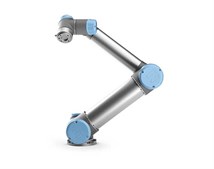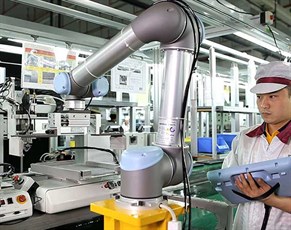-
- bimba
- Universal Robots
- dorner
- cobots
- industrial automation nj/ny
- The Knotts Company
- manufacturing
- Dorner Conveyors,
- The Knotts Co
- UR
- Robots
- PLC
- Unitronics
- automation
- automation solutions
- humphrey products
- knotts company
- cobot
- robotics
- solutions
- HMI
- conveyors
- aluminum extrusion
- aluminum extrusion in nj
- engineered solutions
- Robotiq
- air cylinder
- collaborative robots
- cost effective
- cost savings
- t-slotted extrusion
- bimba solutions
- collaborative robot
- technology
- MiR
- Humphrey
- IAI
- WAGO
- assembly
- bimba pneumatic
- machine guard
- smartflex conveyors
- solution
- 2200 Series
- cylinder
- electric cylinder
- motion control
- packaging
- pharmaceuticals
- sanitary conveyor
- Products
- automated palletizing
- automation control
- conveyor
- core competencies
- custom solution
- grippers
- palletizing
- resource
- robot
- robotics solutions
- AquaPruf
- Asycube
- Asyril
- Belt Conveyors
- Cage Clamp
- Food
- Machine Guarding
- Mobile Robots
- Norgren
- OptoForce
- Pneumadyne
- Pneumatic Valve
- ROBO Cylinder
- UR5
- actuators
- compressed air
- food safety and sanitation
- mobile industrial robot
- quality assurance
- safety
- stainless steel conveyors
- vision
- Belts
- Benefits
- Beverage
- Bimba IntelliSense®
- CT Effects
- PLC+HMI
- Predictive Maintenance
- Preventive Maintenance
- Proportion Air
- Proportional valve
- Questions
- Success
- UR10
- Vaccon
- automated inspection
- gripper
- improvement
- industrial vision
- intelligent actuator
- labeling application
- labor shortage
- life science
- medical
- medical industry
- monitoring
- pneumatic motion control
- regulator
- sales process
- sensor
- thomas
- valve
- 3200 series
- 6-axis robot
- 80/20
- Acro
- Automate
- High Pressure Regulator
- LMI
- Machine
- OnRobot
- Original Line Cylinder
- Pinch Valve
- Precision Technology
- Product News
- ROBO Cylinders
- ROI
- Reducing Costs
- automated mobile robot
- autonomous mobile robot
- connectors
- controls
- covid
- custom solutions
- customer service
- e-Series
- electric actuator
- electro-mechanical
- end of arm tools
- energy plant
- ethercat
- external resource
- flexmove technology
- guarding
- inspection
- machine control
- manufacturers
- motion
- new product
- outsource
- outsourcing
- packing
- pneumatic actuator
- pneumatic valves
- precision move
- pressure
- quick response solution
- sales tools
- steel frame
- vacuum
- vacuum technology
- welded steel frame
- 7X Series Conveyor
- AMR
- Advantages
- Application
- Applied Motion Products
- Asycube 530
- Asyfeed Pocket
- Balanced Valves
- CNC program
- Continuity Inspection Tool
- Control Panel
- Controllers
- Crowned Pulley
- F22 Series
- Factory Improved Productivity
- Filtration
- Fire Fighting
- Flexible Feed
- Freeze protection
- Gas
- IP65
- Inspekto
- IntelliPress
- Intellisense
- International Manufacturing Technology Show 2016
- LARGO A5
- Legos
- MIRAI
- Machine Controllers
- Machine Vision
- Micropsi
- NJ
- NY
- New
- New Scale Robotics
- OEE
- Oil
- Optimization
- PACK EXPO
- PC10
- Parison Blow Molding
- Pick-it
- ProControl Series
- ROEQ
- Rain Test
- Resin Block
- Rio Olympics
- SCHUNK
- Sanitation
- Sensors
- Smart Manufacturing
- Spot Welding
- TRD
- Temperature Controller
- Training
- Trio Manufacturing Technology
- Twist Clamp
- UR3
- UniStream
- Universal
- V-guide
- Valve Assemble
- Vane-Buster
- Versagrip
- Versagrip solenoid pinch valves
- Victory Actuator
- Vision430
- XTR Series
- Yamaha
- balanced solenoid valve series
- bimba electric
- bottle filling
- brewery
- brushless motor
- buna
- center point
- chicane
- cloud
- cobot compliance
- collaborative operation
- compact series
- composite cylinder
- conference
- cost
- date code
- demonstration
Get the latest in your inbox.
This post is brought to you by Universal Robots.
 In the industry today, we maintain a barrier--a fenced off barrier--between human work and machine work. But the industrial value creation of tomorrow is to be found in the fusion, in the interplay, between humans and robots.
In the industry today, we maintain a barrier--a fenced off barrier--between human work and machine work. But the industrial value creation of tomorrow is to be found in the fusion, in the interplay, between humans and robots.
Will robots make us all unemployed? No, because we do not have, nor will we ever have, machines and technology that can take over all jobs. However, if you hold a monotonous and repetitive job you will have to come to terms with the fact that your tasks or work place might change as robots become more flexible and intuitive to work with.
It is just as well! It is not reasonable to use people as if they were machines. It is not healthy for neither body nor mind to perform the same backbreaking movements feeding raw pieces for processing into a machine all day long.
Introducing robot technology is of course not just about relieving people from mechanical wear-down. It’s about using also both resources and machines optimally enabling a production process to run without interruptions.
When it comes to creating uniform items of high quality, the robots perform the tasks with far greater precision, focus, and stamina than we are able to throughout a long day at work. But...
The human aspect has been lost somewhere in this development where the fenced-off robot technology dominates the factory floor. Actually, far from dictating only machines IN PLACE OF humans, the development and the technology is headed towards man AND machine, and they will work in closer and closer collaboration.
In the industry and society of tomorrow, we will be using robots for the tedious and predictable and people for handling the unpredictable, adding soul to the products--such as customized goods of extra high quality where greater attention is paid to detail.
In actuality, modern robots will give the industrial workers more influence in production.Valuable knowledge is built on the factory floor, and robots can neither collect nor acquire experience from it.
Only people can do that - creative people that problem-solve and improve products. A skilled cabinetmaker might see a piece of wood and say, 'this piece of wood would make a really fine table.' A robot cannot do that.
As of now, a big gap has materialized in the value-creation process after the first four industrial revolutions: Mechanization, electrification, automation, and now digitalization. It is this loss of value that the fifth industrial revolution should remedy.
The values in the world have been created through industrial production but the production environment has scared creative people away from the manufacturing industry. Now the new generation of collaborative robots enables us to view robots in a new way.

At the electronics manufacturer Wistron, they have embraced the opportunities in the new collaborative robot types, also called cobots, whole-heartedly. At Wistron robots and people work side-by-side interacting with one another, resulting in increased productivity, improved staff retention and, reduced training costs and overall a much improved competitive edge.
The same happens on the BMW assembly line. The big breakthrough is the modern robot’s 'senses' in the form of sensors, cameras, and other safety features. Human intelligence works in tandem with robots, it’s a quantum leap from the conventional and potentially dangerous industrial robots.
Universal Robots creates cobots, and cobots are realizing - to put it bluntly - the fifth industrial revolution. People can use cobots to build passion and soul into their products. Right in the factory where products are made.
Consumers are increasingly willing to pay a high price for specialized products because they want to feel special. An added bonus is that the manufacturer can increase the profit margin even though it costs extra to build more soul into these products.
So let’s get the robots out of the cages. The creative people into the manufacturing industry. And the soul back into the products.
Interested in a Universal Robot?
Interested in Learning More?
Please fill out our contact form, and a member of the Knotts Team will get in touch to help you.
%202.png?width=323&height=215&name=PH_VA_VR_Series_Technical_Support%20(1)%202.png)



